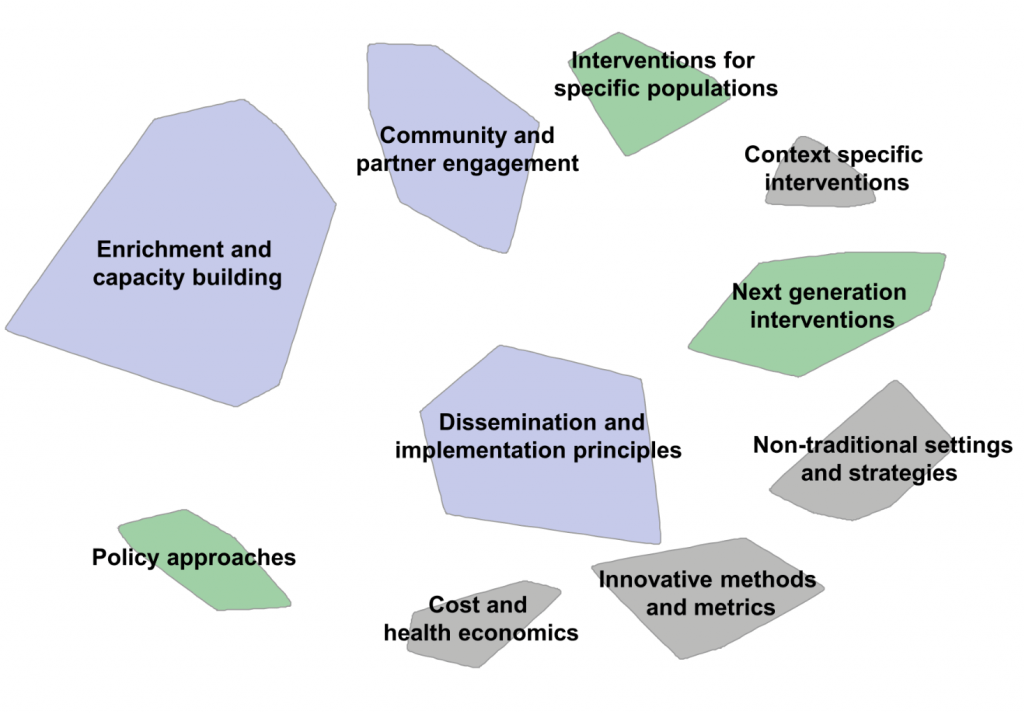In a recent study conducted by the WU-CDTR, stakeholders in public health research and practice identified 10 priority areas for advancing diabetes translation research towards the goal of health equity in diabetes prevention and control.
To identify priority areas, the authors used concept mapping with input from center-affiliated investigators and public health practitioners. The study, published in BMJ Open Diabetes Research & Care, resulted in a conceptual framework containing the following themes:
- community and partner engagement
- enrichment and capacity building
- interventions for specific populations
- context specific interventions
- dissemination and implementation principles
- non-traditional settings and strategies
- cost and health economics
- innovative methods and metrics
- policy approaches
- next generation interventions
The first strategy— community and partner engagement—conveys means to increase reach to communities by fostering relationships between academia and community organizations. This strategy aligns with interventions for specific populations and context specific interventions, which are two strategies advocating an imperative for programming that is tailored to the needs of diverse populations and community settings. Applying these strategies holds promise for more effective and sustainable interventions geared towards diabetes prevention, especially among vulnerable populations.
Within the framework, the following strategies—dissemination and implementation principles, non-traditional settings and strategies, cost and health economics, and innovative methods and metrics—present practical tools and methods for researchers to scale up their evidence to vital stakeholders in real-world practice settings. These strategies complement aspects of enrichment and capacity building, which seek opportunities to enhance educational experiences for investigators and public health practitioners.
The two macro-level themes in the framework are policy approaches and next generation interventions, which signify ideas that encourage a shift from compensatory approaches (immediate, individually focused actions to prevent and manage diabetes) to non-compensatory approaches (directly taking actions to impact social determinants of health as root causes of disparities) to address health equity. Interventions for specific populations, in addition to the two macro-level policies, are identified as innovative targets for effective translation of diabetes research to promote health equity. Innovative targets highlight the importance of diversity, transdisciplinarity across multiple sectors, and macro-level research.
While participants rated innovative targets with high importance, it is important for researchers and public health practitioners to reflect on their feasibility. Thus, the authors of the study conclude, “Future efforts and research should explore how to best support innovative targets, themes rated highly important but less feasible, to advance the field of diabetes translation research.”
The study was published in BMJ Open Diabetes Research & Care.
